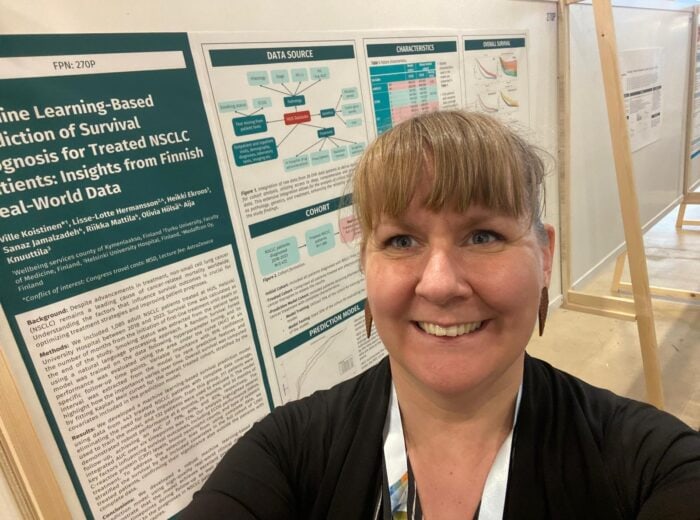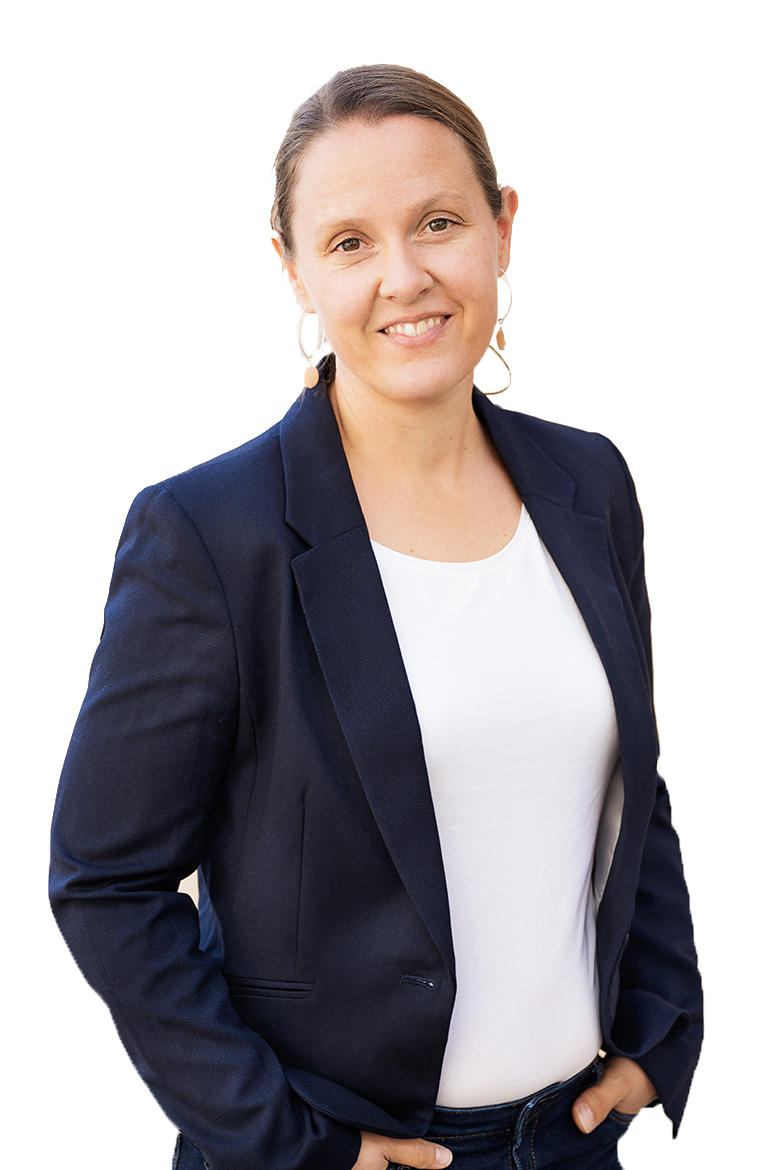Medaffcon Presented Insights from Finnish Real-World Data at European Lung Cancer Congress
Medaffcon's European Lung Cancer Congress (ELCC) poster showcased key findings from a recent study on non-small cell lung cancer (NSCLC).
Lung cancer is the leading cause of cancer deaths in Finland, with a particularly poor prognosis for non-small cell lung cancer (NSCLC). It is often diagnosed at an advanced stage when treatment options are limited. A recently published retrospective registry-based real-world evidence (RWE) study on KRAS-mutated NSCLC patients in Finland addressed this issue.
Medaffcon’s study was the first of its kind in Finland. It demonstrated that lung cancer is at the forefront of medical advances, with genetic tests being routinely used, especially for NSCLC patients.
The field is developing rapidly. New genetic factors, targeted therapies, and immuno-oncological treatments are entering the market quickly, which are expected to lead to better treatment outcomes. This results in a highly complex and constantly changing treatment landscape. Therefore, understanding the subgroups of NSCLC patients and their outcomes in real-world settings is increasingly important.
The prognosis for non-small cell lung cancer remains poor despite the improvement in the prognosis for advanced NSCLC due to targeted therapies and immuno-oncological treatments. The need for personalised treatments is emphasised because genetic mutations significantly impact disease progression.
The study indicates that NSCLC imposes a substantial economic burden. This is influenced by the complexity of treatment, the need for long-term care, the use of new and expensive treatment modalities, and the impact of the disease and treatments on patients’ ability to work and quality of life.
According to Riikka Mattila, PhD, Scientific Advisor at Medaffcon, genetic mutations, such as the KRAS mutation, play a central role in developing non-small cell lung cancer.
“Lung cancer is at the forefront of personalized treatment development. Therefore, gene panels are important. It is essential to test all patients. In this study, it was found that some patients were tested while others were not,” says Mattila.
The study identified 601 NSCLC patients, 64 % of whom were tested for genetic changes. Of those, 9 % had a KRAS G12C mutation. Common characteristics included younger age and smoking.
“In our analysis, these patients fared worse and had higher resource use. These factors correlated: worse disease required more treatment,” says Mattila.
Patients with KRAS mutations were often at a metastatic stage at the time of diagnosis, meaning the disease had progressed significantly and spread to other parts of the body, making it more challenging to manage. The disease is aggressive, and treatment prognoses are generally poor.
KRAS G12C, in particular, stood out from other subgroups. These patients had a shorter overall survival and used more healthcare resources than others.
In summary, the study’s results highlight the significant impact of KRAS mutations on clinical outcomes and the use of healthcare resources, especially emphasising the KRAS G12C mutation.
The study showed that lung cancer treatment is at the forefront of medical advances, with genetic tests and targeted therapies being routinely used, particularly for NSCLC patients.
Medaffcon’s team included data scientists Anna Anttalainen and Samuli Tuominen and scientific advisor Riikka Mattila, PhD. The work is always done as a team, with the goal that the entire team is involved from the beginning of the project. If necessary, the expertise of the entire Medaffcon team is available.
Finland is also an exceptional country for research.
“We can combine all clinical data with social and healthcare data from deep genetic data in Finland. This cannot be done elsewhere,” says Riikka Mattila.
Real-World Evidence Study of Patients with KRAS-Mutated NSCLC in Finland. Anttalainen A, Pietarinen P, Tuominen S, Mattila R, Mutka A, Aija Knuuttila. Current Oncology (2024).
Find more RWE study summaries here.
Medaffcon, founded in 2009, is a Nordic research and consulting company specializing in Real-World Evidence, Medical Affairs, and Market Access. With offices in Stockholm, Sweden, and Espoo, Finland, we provide expert services across the Nordic region. Our services combine strong medical and health economic expertise with modern data science.
The company employs some 30 experts. Since 2017, Medaffcon has been a subsidiary of Tamro Oyj and is part of the PHOENIX group, which is a leading provider of healthcare services in Europe.

Medaffcon's European Lung Cancer Congress (ELCC) poster showcased key findings from a recent study on non-small cell lung cancer (NSCLC).

Johan Rehnberg started working as a Scientific Advisor at Medaffcon’s Swedish office in August 2024. He is a dynamic researcher who values opportunities to learn new things and develop his skills – opportunities that Medaffcon provides.

The algorithm was originally developed to extract smoking status from patient texts with purpose to analyze the effects of smoking on postoperative complications. Today, it is also being utilized in lung cancer research.

Sr. Scientific Advisor
RWE Lead
PhD
+358 50 345 2393
mariann.lassenius@medaffcon.com
Mariann joined Medaffcon’s team in 2016 after finishing her PhD. The transition to real world evidence (RWE) research was a natural continuum to her previous research career. Through RWE studies, she has had the privilege to gain a broad insight into working with different stakeholders within the healthcare field. The vast proportion of her days goes towards interacting with clients, planning and performing RWE studies, and supporting Medaffcon’s RWE team. Subjects that keep her work interesting are the vast variability of customers and projects, problem-solving, and interacting with people.
“The number of RWE studies has increased since stakeholders within the healthcare industry have an increasing demand for knowledge-based decision making tools that need to be fulfilled. The future, therefore, has an ever-increasing emphasis on RWE”.